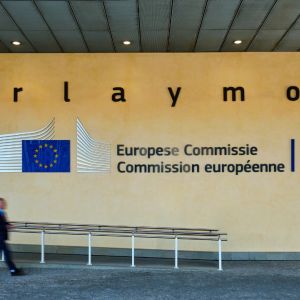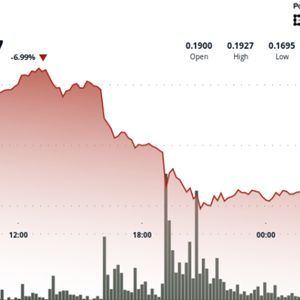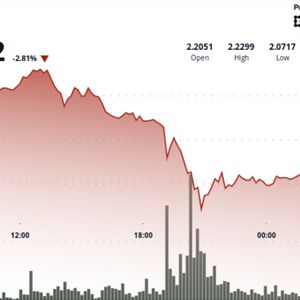EU institutions recommend accepting Bulgaria into the eurozone in 2026
4 min read
The eurozone is about to grow in territory and influence following formal approvals by key EU institutions for accepting Bulgaria as its newest member. The Eastern European nation is on its way to become the 21st country using the common currency in 2026. However, the prospects of joining the eurozone have been causing political turmoil in Bulgaria, fueled by a clash between fears of rising prices and shrinking sovereignty and hopes for a better future as an integral part of the Western civilization and prosperity. Europe finds Bulgaria ready to join the eurozone The European Commission (EC) and the European Central Bank (ECB) both gave the nod to Bulgaria’s accession to the eurozone on Wednesday. In separate “convergence reports,” the EU bodies acknowledged that the economic criteria for membership have been met. To achieve that, Bulgaria had to bring its inflation within 1.5 percentage points of that of the best-performing European economies and it did, with 2.7% in April, just below the reference rate of 2.8%. It also kept its budget deficit at 3% in 2024 to tick another box and aims for a lower 2.8% in 2025. The country’s public debt of between 24% and a little over 25% of GDP for the two years respectively is well below the acceptable maximum of 60%, Reuters noted in an article. Bulgaria’s long-term borrowing costs are in the desired range as well. The Bulgarian lev has been pegged to the euro since its launch in 1999 under a currency board and the fixed exchange rate meant that the requirement to stay within 15% of a central parity rate in the Exchange Rate Mechanism II was not an issue either. “The European Commission concluded that Bulgaria is ready to adopt the euro as of 1 January 2026 – a key milestone that would make it the twenty-first Member State to join the euro area,” the executive arm in Brussels said in a statement. Quoted by Euronews, EU’s Economic Commissioner Valdis Dombrovskis emphasized: “Today’s report is a historic moment for Bulgaria, the euro area and the European Union.” “I wish to congratulate Bulgaria on its tremendous dedication to making the adjustments needed,” ECB Executive Board Member Philip Lane stated after the euro area’s monetary authority also gave Bulgaria the go-ahead. Today, Bulgaria is one step closer to adopting the euro. This will mean more investment and trade with euro area partners, and more stability and prosperity for the Bulgarian people. Bulgaria will also take its rightful place in shaping euro area decisions. Congratulations! — Ursula von der Leyen (@vonderleyen) June 4, 2025 Bulgarians fear euro comes with higher prices Bulgaria’s adoption of the single currency now has to be approved by European leaders later this month before finance ministers of the eurozone fix the conversion exchange rate for the Bulgarian lev next month, with the final green light expected on July 8. If everything goes well, 6.5 million Bulgarians will join 347 million Europeans who are already using the euro. Then, only six of the 27 EU member states will remain outside the euro area – Sweden, Denmark, Poland, Czech Republic, Hungary, and Romania – and none of them plan to join soon. On the contrary, consecutive Bulgarian governments have been striving for accession, overcoming a string of economic obstacles in the past few years, including the current coalition cabinet led by Prime Minister Rossen Zhelyazkov of the Citizens for European Development of Bulgaria (GERB) party. A remarkable day. Another step forward on Bulgaria’s path to the euro. The positive assessments by @ecb and @EU_Commission confirm our progress — but the work continues. This follows years of reforms, commitment, and alignment with our European partners. — Rossen Jeliazkov (@R_JeliazkovPM) June 4, 2025 Alongside the promised economic benefits, Bulgaria expects to have a say in future eurozone decisions and get a seat at the ECB’s Governing Council. But the country, which joined the EU in 2007, has been waiting to be admitted to the club for so long that around half of Bulgarians have now lost enthusiasm for the euro. On Wednesday, The EU’s approval for Bulgaria’s candidacy was met with a protest organized by the far-right and allegedly pro-Russian “Revival” party which blocked the city center of Sofia, Bulgaria’s capital. Bulgarian President Rumen Radev has been also accused of acting in the interests of Moscow after proposing a last-minute referendum seeking to postpone the adoption of the euro. The move was rejected by the pro-European parliamentary majority. If Bulgaria joins the eurozone in January, this will be the first accession of a new member to the group since Croatia entered the single currency area in 2023. Croatians are still dealing with increased inflation and that has been a main concern for many Bulgarians as well. “Ensuring price transparency and combating abusive price increases will require a special effort,” Valdis Dombrovskis admitted to journalists. The EU economy chief insisted that “previous practices and data from other euro area countries demonstrate that this is perfectly achievable.” KEY Difference Wire helps crypto brands break through and dominate headlines fast

Source: Cryptopolitan



